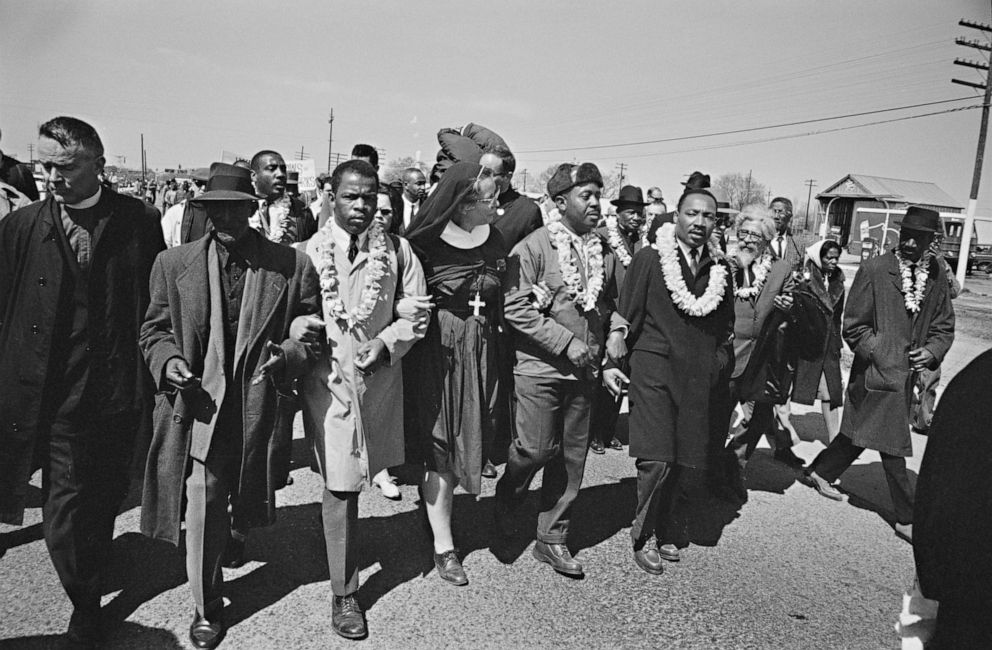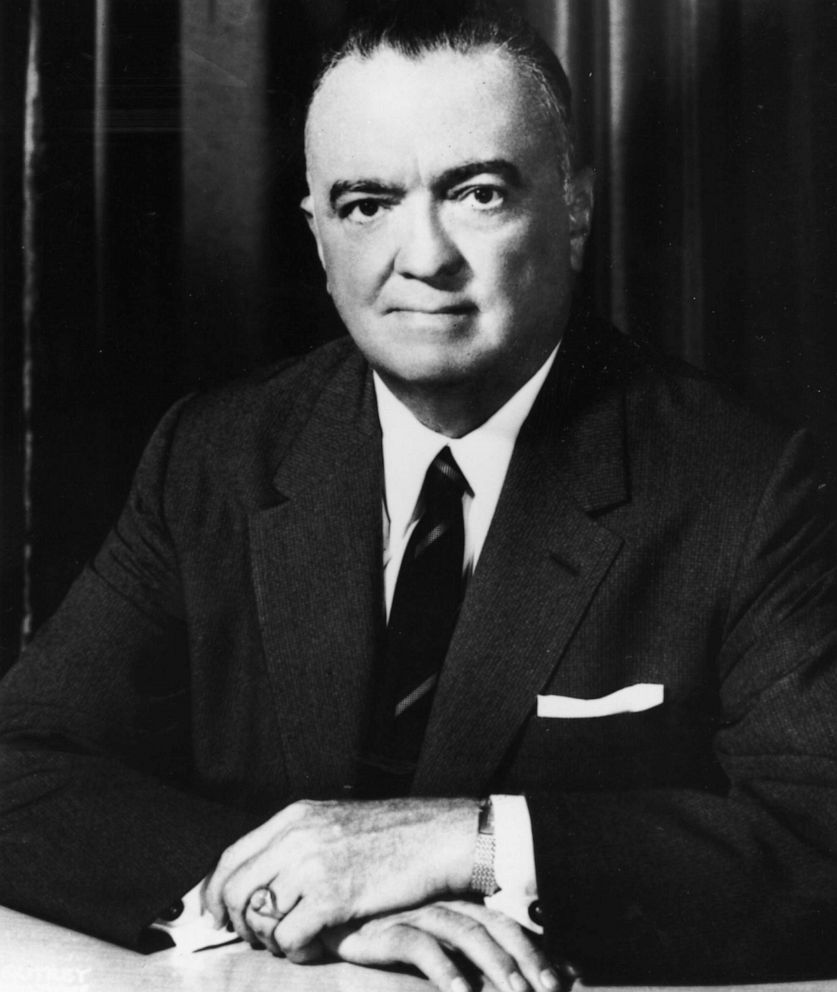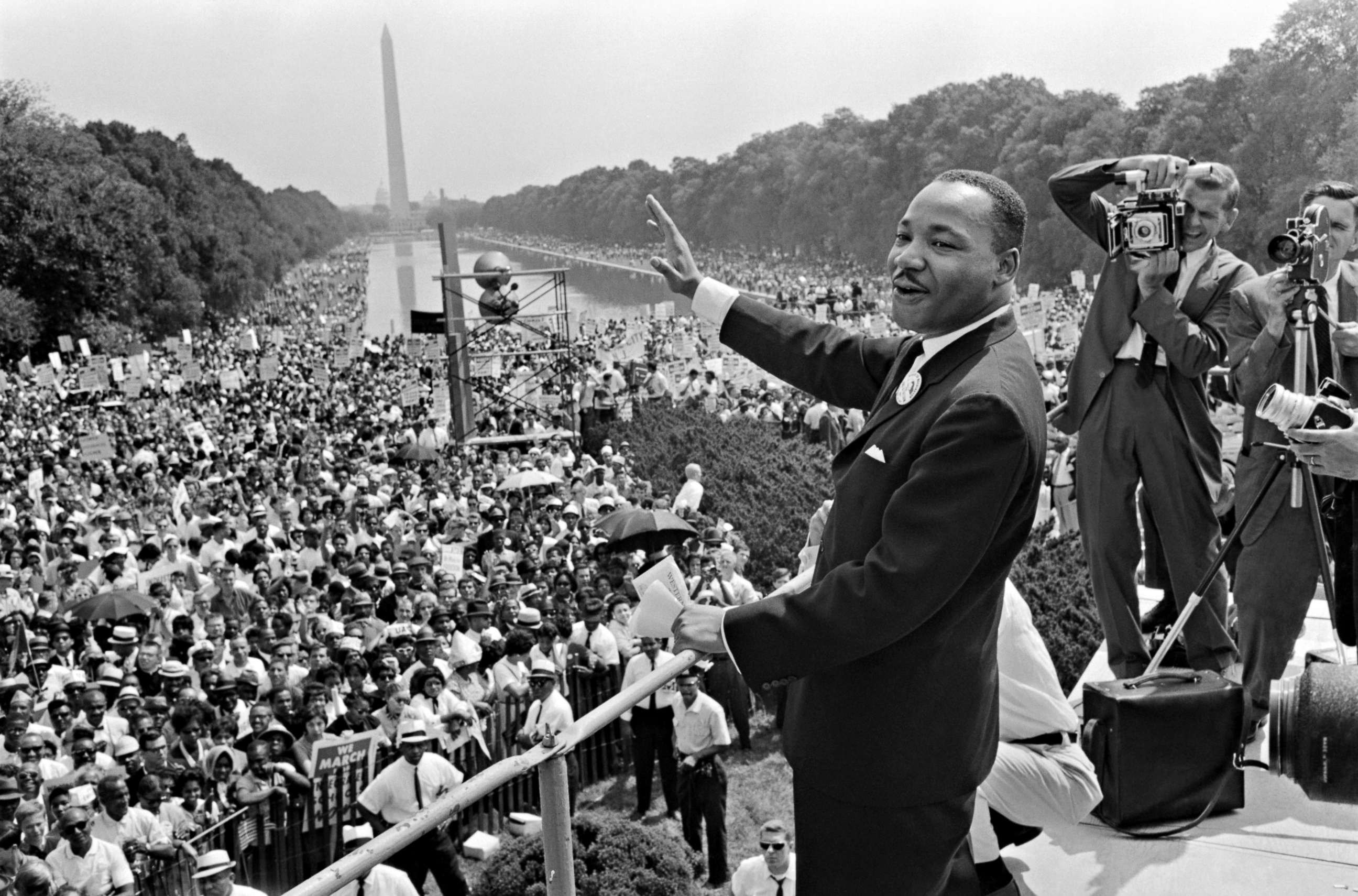FBI, which conducted surveillance on MLK, sees backlash after social media post
History shows the FBI conducted targeted surveillance of civil rights activists.
The Federal Bureau of Investigation, which once conducted targeted surveillance of Dr. Martin Luther King, Jr. and other activists during the civil rights movement, caused a firestorm on social media after posting a tribute honoring the iconic leader.
"Today, the FBI honors the life and work of the Reverend Dr. Martin Luther King, Jr. A quote from Dr. King is etched in stone at the FBI Academy's reflection garden in Quantico as a reminder to all students and FBI employees: 'The time is always right to do what is right,'" the FBI tweeted on Monday, along with a photo of the quote lit up in the darkness.
The American Civil Liberties Union (ACLU), which has also been critical of the FBI's treatment of modern-day civil rights activists, was quick to join in with the chorus of criticism.
"Reminder: The FBI spied on Martin Luther King, Jr. -- and today classifies Black civil rights activists as 'extremists,'" the ACLU wrote in response to the FBI tweet. "If we let the government whitewash history, we risk letting abuses repeat themselves."
Richard Eskow, who served as the lead writer and editor for Vermont Sen. Bernie Sanders' 2016 presidential campaign, also tweeted a response to the FBI post.
"FBI, translated: Of all the people we have wiretapped, blackmailed, and tried to drive to their deaths through suicide, there are none we think more highly of than Dr. King," he wrote.
Clayborne Carson, a professor of history at Stanford University and the founding director of the university's Martin Luther King, Jr., Research and Education Institute, told ABC News on Tuesday that the FBI has a "sordid and regrettable history of surveillance and dirty tricks against Martin Luther King" -- one that was part of a pattern in the bureau's treatment of civil rights activists.

Carson, who was selected in 1985 by Coretta Scott King -- MLK Jr.'s wife -- to edit and publish the papers of her late husband in the King Papers Project, added that the agency saw the civil rights activist as "the enemy within."
"J. Edgar Hoover and many of those in the top levels of the FBI saw Martin Luther King as the enemy within and they used what I think most people would consider illegal tactics to try to undermine him and to invade his privacy," he said.
According to the the Stanford research institute, as King gained national and international notoriety -- being named TIME Magazine's "Man of the Year" in 1963 and winning the Nobel Peace Prize in 1964 -- the FBI stepped up its campaign against him.

Hoover, then the director of the FBI, established phone taps and bugs to conduct surveillance of King and his circle -- an effort that was approved by then-President John F. Kennedy and Attorney General Robert Kennedy, according to the institute.
Marc Lamont Hill, a professor at Temple University and an activist, criticized the FBI for continuing to memorialize Hoover.
"If you want to 'do what is right,' you should denounce Hoover's attacks on The Black Freedom Movement and rename the building," Lamont Hill tweeted.
The ACLU also referenced a 2017 FBI report in their critical tweet, adding that it was disseminated to law enforcement titled, "Black Identity Extremists Likely Motivated to Target Law Enforcement Officers."
The report was seen by civil rights groups as targeting Black Lives Matter activists and seeking to de-legitimize protests against police brutality.
"Weaponizing surveillance against racial justice activists was wrong in the past, and it has no place in our present," ReNika Moore, director of the ACLU's Racial Justice Program, told ABC News' in a statement on Tuesday. "The FBI has an ugly history of using government surveillance programs to spy on and attempt to discredit Black civil rights activists, including Martin Luther King, Jr."
She added, "Black activists continue to be subjected to this same, baseless and discriminatory surveillance by the FBI today."
Then-Attorney General Jeff Sessions was grilled by members of Congress in November 2017 during a House Judiciary Committee hearing on the report and its contents.
Sessions said he hadn't seen the report but added that he's "aware that there are groups that do have an extraordinary commitment to their racial identity, and some have transformed themselves even into violent activists."

The ACLU slammed the report and sued the FBI and the U.S. Department of Justice in March in response, demanding that the bureau release records about its intelligence program targeting so-called "Black Identity Extremists."
FBI spokeswoman Tina Jagerson told the Associated Press in March that the agency does not comment on pending litigation.
Pressed about the language used in the report, current FBI Director Christopher Wray testified during a Senate Judiciary Committee hearing in July, asserting that the FBI no longer uses the term "black identity extremism."
Wray said the FBI now groups violent extremism that is racially motivated -- including white supremacy -- under one broad category.
The ACLU lawsuit is still ongoing, according to the organization.
ABC News also reached out to the FBI. A request for comment was not immediately returned.




